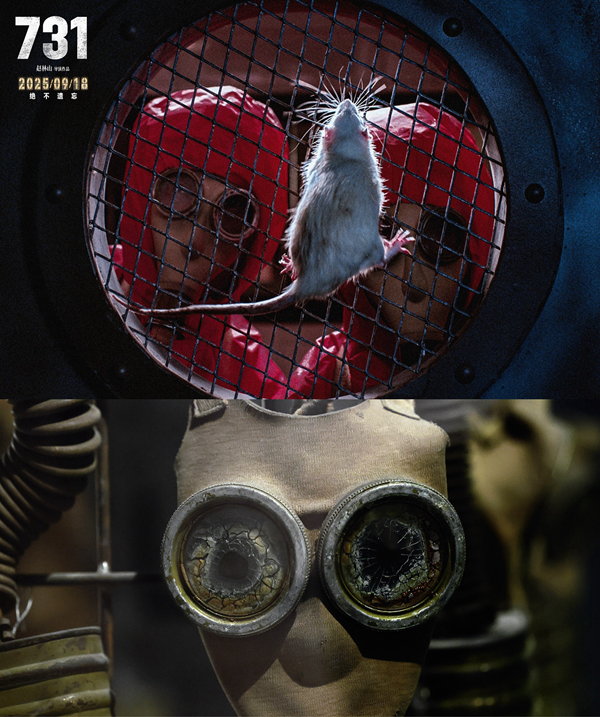Film about Japan's notorious WWII germ warfare unit sets opening-day screening record
2025-09-19 09:59:00
A Chinese film about Japan's infamous WWII germ warfare Unit 731 and its inhumane medical experiments on Chinese victims premiered worldwide on September 18, setting a new benchmark in China's film industry with a record-breaking 255,000 screenings on its opening day.

A photo collage shows a poster of the film "731," internationally titled "Evil Unbound," at the top; and a gas mask once used by the Japanese Army Unit 731 on display at the Exhibition Hall of Evidence of Crimes Committed by Unit 731 of the Japanese Imperial Army in Harbin, capital of northeast China's Heilongjiang Province. /CGTN
Hitting global cinemas on the anniversary of the 1931 September 18 Incident, which marked the start of Japan's 14-year war of aggression against China, "731" – internationally titled "Evil Unbound" – recounts the atrocities committed by Japan's Unit 731 in Harbin, northeast China. The top-secret Japanese military unit subjected at least 3,000 people to human experiments between 1940 and 1945, according to historical records, and Japan's use of biological weapons claimed the lives of more than 300,000 people in China.

A photo collage shows a poster of the film "731," internationally titled "Evil Unbound," at the top; and a corner at the Exhibition Hall of Evidence of Crimes Committed by Unit 731 of the Japanese Imperial Army recreating the scene of a field experiment by the Japanese Army Unit 731 in Harbin, capital of northeast China's Heilongjiang Province. /CGTN
History cannot be buried. It endures in the evidence left behind, in wounds that remain unhealed, and in lessons yet to be learned. With "731," audiences are choosing to remember.

A poster of the film "731," internationally titled "Evil Unbound." /Poster provided to CGTN
According to ticketing platform Beacon, the film achieved the highest number of screenings ever for an opening day in Chinese film history. By 2 p.m. on September 18, its box office revenue had already surpassed 200 million yuan (over $28 million).